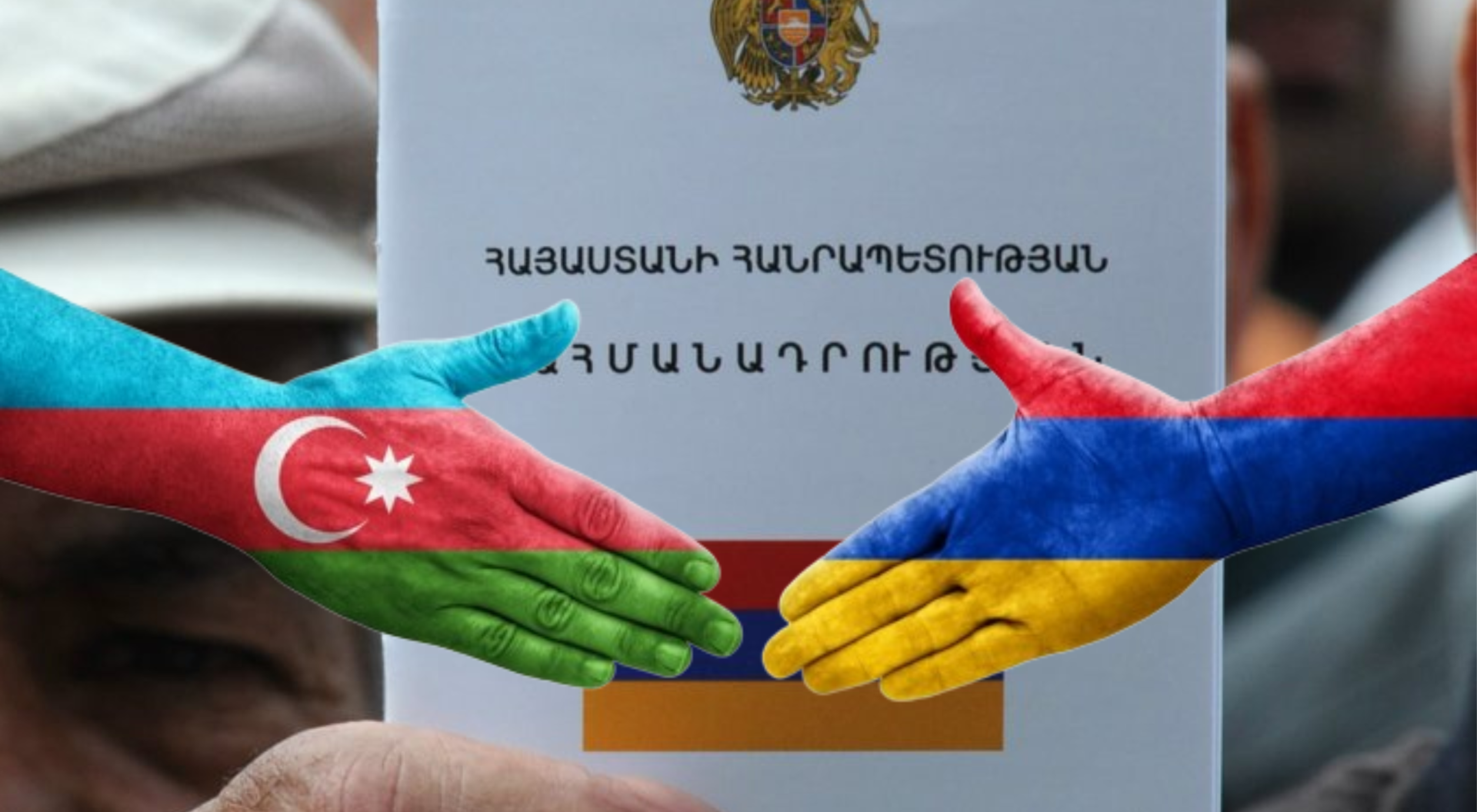In the period after 2020, many political and economic changes are noticeable in the South Caucasus. The most important event of the region is undoubtedly the liberation of Azerbaijani lands, which were under Armenian occupation for nearly 30 years. The long-standing tension between Azerbaijan and Armenia is finally coming to an end recently. Thus, Armenia's agreement to return 4 villages of the Gazakh region to Azerbaijan, Armenian PM Nikol Pashinyan's leaning toward peace, and the meeting of the foreign ministers of Azerbaijan and Armenia in Almaty in May, give promising predictions about the signing of a peace treaty between the two states soon.
However, there are still some obstacles on the way to the normalisation of relations between Baku and Yerevan. Thus, although not directly, the Armenian constitution makes territorial claims against both Azerbaijan and Turkiye in the Declaration of Independence it refers to. Therefore, President Ilham Aliyev said that it is impossible to conclude a peace agreement if the current constitution of Armenia remains unchanged at the meeting with the parliament chairmen of TURKPA member countries. Even the Prime Minister of Armenia, Nikol Pashinyan, made statements about the necessity of adopting a new constitution many times in his speech in the Armenian Parliament.
But the question is: why is Armenia so reluctant about changing its constitution?
It should be noted as a clear example that changing the constitution after long wars is a sound policy implemented by many countries in the world.
Recall that in 1947, the Japanese government adopted a new constitution with significant changes, including renouncing war and guaranteeing fundamental human rights. With this, the Japanese once again determined the establishment of democratic and non-militaristic foundations in the country.
Also, Germany took responsibility for the disasters in the second world war and adopted a new constitution in 1949. By adopting a new constitution, the Germans once and for all said "no" to their embarrassing past in WWII.
In addition, Great Britain also passed the Northern Ireland Act in 1998. According to that law, articles providing for territorial claims to Northern Ireland were removed from the Constitution of the Republic of Ireland. Even Italy, South Korea, France, and South Africa are among the countries that have changed their constitutions for similar reasons.
But there are still allegations against the territories of Azerbaijan and Turkiye in the constitution of Armenia. This reality is the biggest threat to achieving lasting peace. Therefore, Baku constantly calls Armenia to change the existing constitution for final peace.
It is true that rallies and protests organized by the church and revanchists are continuing in Armenia. But willingly or unwillingly, the Yerevan government should make this decision.
What claims against Azerbaijan and Turkiye are reflected in the constitution of Armenia?
In the preamble of Armenia's declaration of independence, it was clearly stated that Azerbaijan's "Nagorno-Karabakh" territory should be annexed to Armenia.
In the second part of the declaration, citing the so-called Armenian Genocide, it was reflected that the border areas of Turkiye called "Western Armenia" should be returned to Armenia. This is putting forward territorial claims against the Republic of Turkiye.
It should be noted that Azerbaijan also proposed to Armenia the cancellation of the Minsk Group of the OSCE.
Because there is no need for the Minsk group, it is not functioning anymore, and as a matter of fact, it never functioned properly. However, Armenia has not yet taken a step towards the dissolution of the Minsk Group and the removal of territorial claims from the constitution. This is considered a direct obstacle to peace.
Undoubtedly, the Armenian side has been taking effective steps for peace for some time. It is desirable and expected that the unrest in the country will end and that Yerevan will sign a change in the constitution.
As for the OSCE Minsk group, there is no longer any need for their continuation in the Garabagh issue, even in the Caucasus region. The OSCE co-chairs know very well that Azerbaijan resolved the most crucial problem in 44 days that they could not solve in three consecutive decades.
---
Follow us on Twitter @AzerNewsAz

